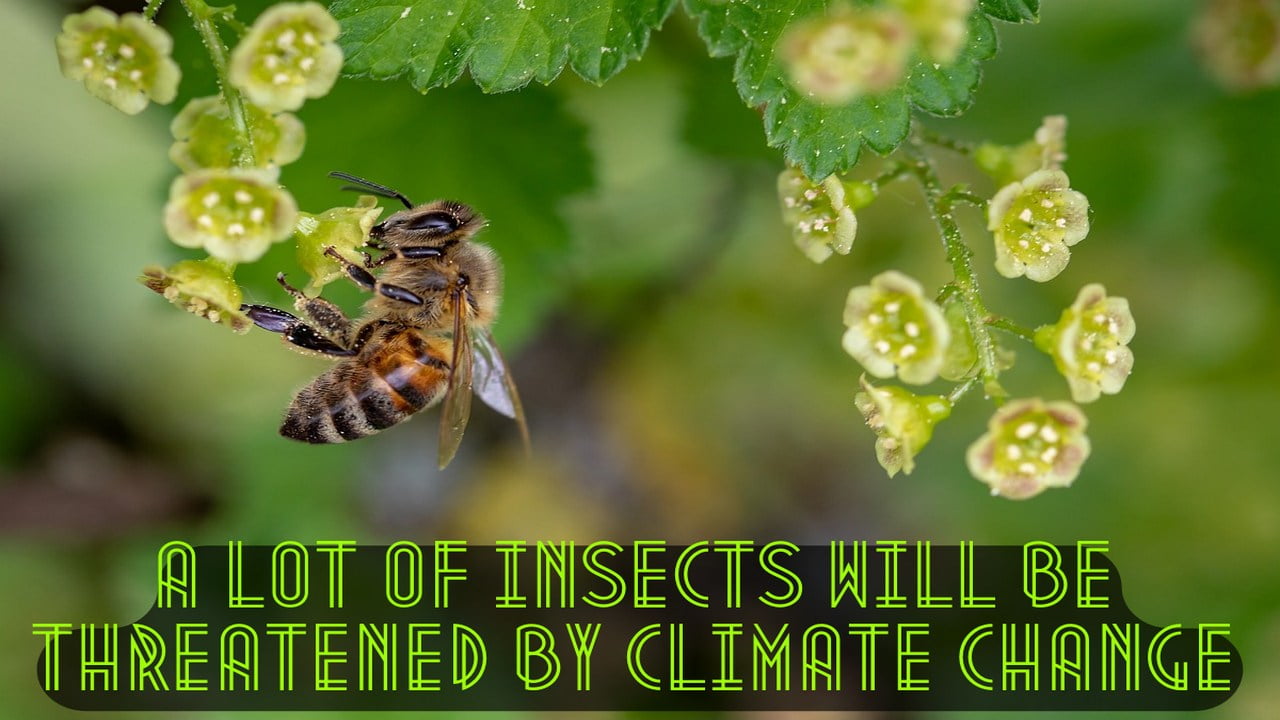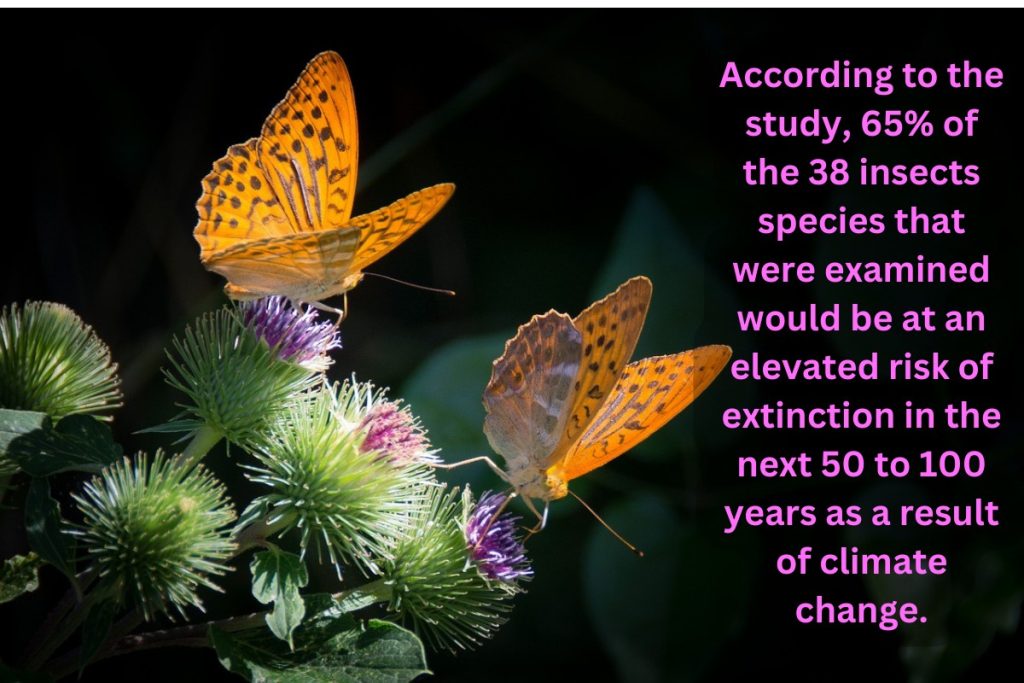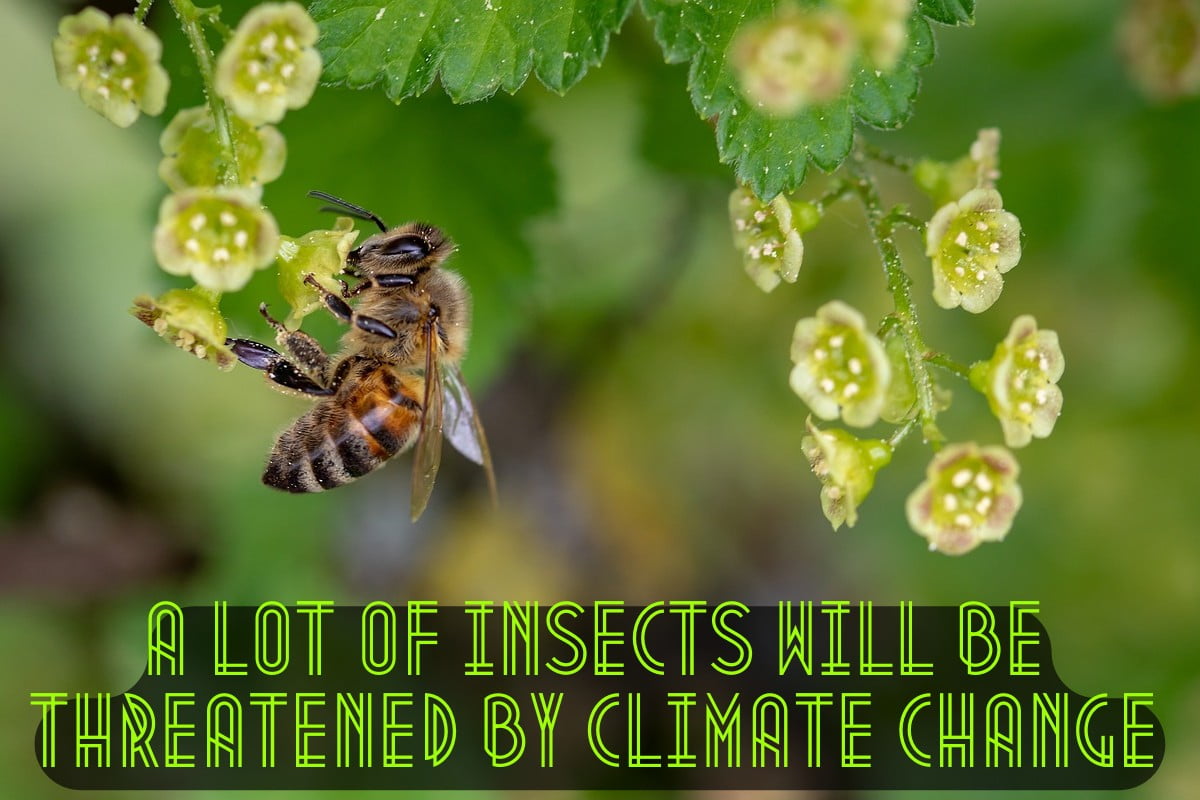A new study says that climate change may kill 65 percent of insects on Earth

How may climate change destroy beautiful nature?
It’s true that the majority of people only associate the adjectives “beautiful” and “insect” with butterflies. However, there are other lovely insects that are not butterflies.
Invertebrates, or creatures without backbones, include insects. They belong to the class of arthropods (which means they feature a segmented body, an exoskeleton, and paired jointed appendages). They have three pairs of legs, an abdomen, a thorax (the center of their bodies), two antennae, and a head.
Insects may be a pesky nuisance most of the time but the entire Phylum Arthropoda is part of a delicate balance that’s life on the planet Earth. They may suck our blood but they also pollinate crops and help us grow food. Insects are directly responsible for our continued presence on the blue planet.
The biological basis for biodiversity is set by insects. They maintain soil structure and fertility, pollinate plants, disperse seeds, cycle nutrients, control the populations of other organisms, and serve as a primary food source for other taxa.
More insects may be at risk of extinction as a result of climate change.
Temperature variations are a significant contributor to the risk of insect extinction, according to a recent analysis. New NASA research models are providing insight into how insect populations might adapt to abrupt temperature changes that are most likely the result of climate change.
However, issues brought on by man-made changes like climate change affect insects as well as humans(How climate change may reduce the nutritional value of human food). According to a recent study, climate change may lead to the extinction of 65% of the studied insects.

why insects are more vulnerable to climate change’s negative effects
Since they are unable to adjust their body temperature to match changes in the outside temperature, cold-blooded insects are more vulnerable to the negative effects of climate change.
Animals with cold blood are those whose body temperatures change in response to their environment.
Auroop Ganguly, a researcher at Northeastern University and a co-author on the paper, stated that “the ecological and data-driven models in this study could enable more accurate predictions of ecological response than we’ve ever had before and inform more targeted strategies for helping species adapt to climate change.”







